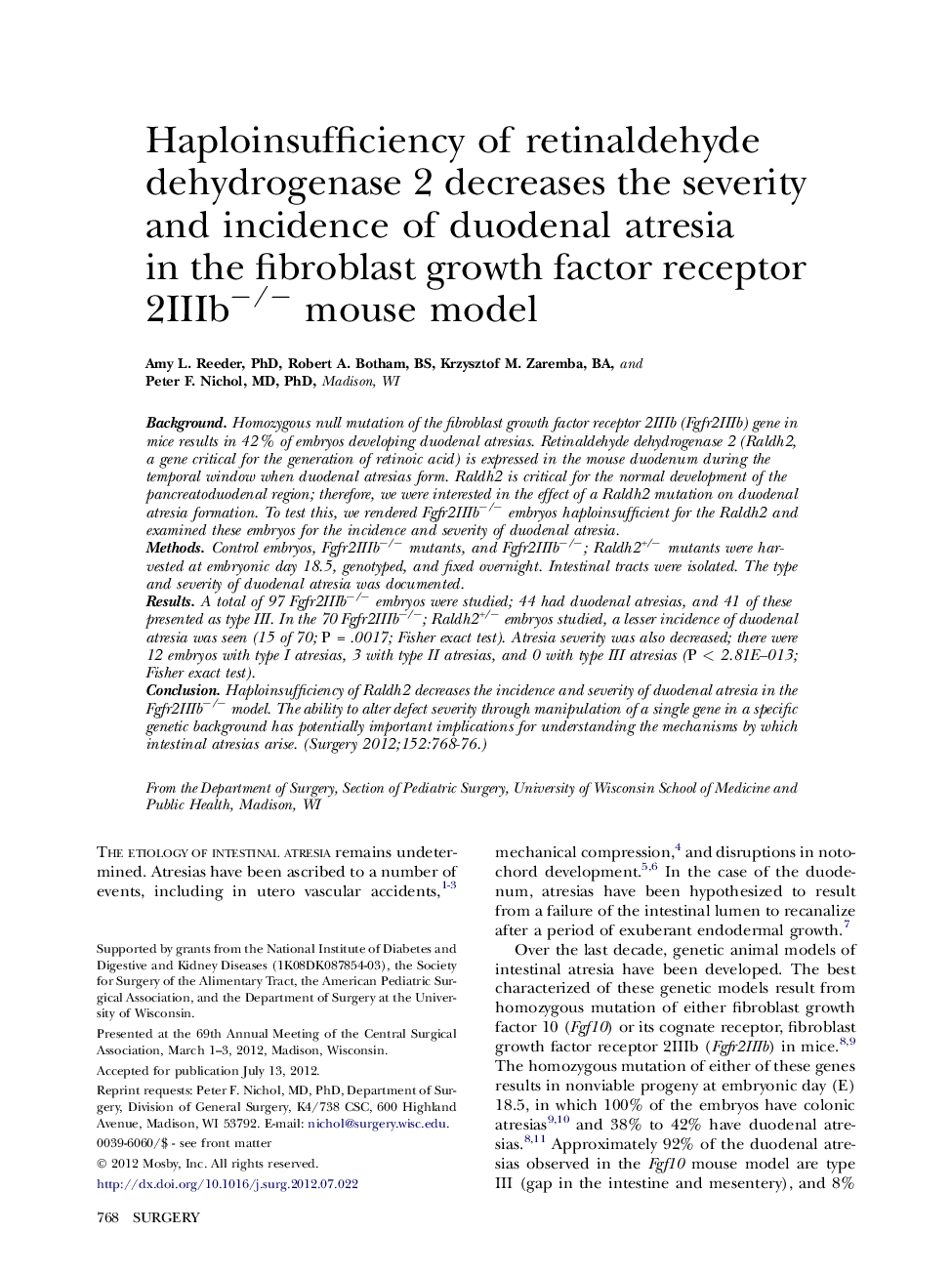| Article ID | Journal | Published Year | Pages | File Type |
|---|---|---|---|---|
| 4307845 | Surgery | 2012 | 9 Pages |
BackgroundHomozygous null mutation of the fibroblast growth factor receptor 2IIIb (Fgfr2IIIb) gene in mice results in 42% of embryos developing duodenal atresias. Retinaldehyde dehydrogenase 2 (Raldh2, a gene critical for the generation of retinoic acid) is expressed in the mouse duodenum during the temporal window when duodenal atresias form. Raldh2 is critical for the normal development of the pancreatoduodenal region; therefore, we were interested in the effect of a Raldh2 mutation on duodenal atresia formation. To test this, we rendered Fgfr2IIIb−/− embryos haploinsufficient for the Raldh2 and examined these embryos for the incidence and severity of duodenal atresia.MethodsControl embryos, Fgfr2IIIb−/− mutants, and Fgfr2IIIb−/−; Raldh2+/− mutants were harvested at embryonic day 18.5, genotyped, and fixed overnight. Intestinal tracts were isolated. The type and severity of duodenal atresia was documented.ResultsA total of 97 Fgfr2IIIb−/− embryos were studied; 44 had duodenal atresias, and 41 of these presented as type III. In the 70 Fgfr2IIIb−/−; Raldh2+/− embryos studied, a lesser incidence of duodenal atresia was seen (15 of 70; P = .0017; Fisher exact test). Atresia severity was also decreased; there were 12 embryos with type I atresias, 3 with type II atresias, and 0 with type III atresias (P < 2.81E–013; Fisher exact test).ConclusionHaploinsufficiency of Raldh2 decreases the incidence and severity of duodenal atresia in the Fgfr2IIIb−/− model. The ability to alter defect severity through manipulation of a single gene in a specific genetic background has potentially important implications for understanding the mechanisms by which intestinal atresias arise.
